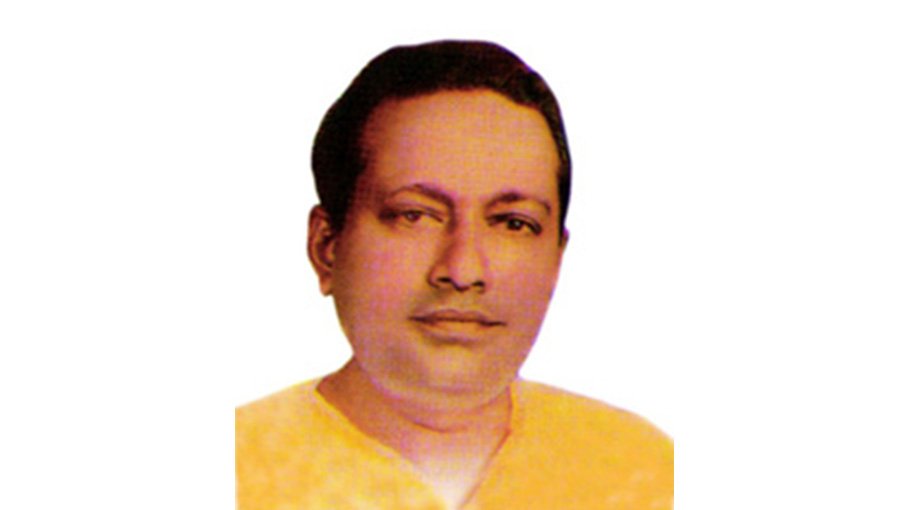Folk maestro Abdul Alim died

Folk songs are inherent resources of the riverine Bangladeshi culture. The songs express hopes and frustrations, and uphold the life and culture of different regions of the country. Bhatiali songs, sung mainly in riverine regions of Mymensingh region and the low lands of Sylhet region, are meant to replicate the energy and timelessness of the rivers that have been flowing from time immemorial. There many singers are famous in Bangladesh for Bhatiali songs and folk songs.
Abdul Alim is greatest folk singer in the country. He was a brilliant folk singer possessed a melodious and gifted voice, which is yet to be surpassed by any other folk singer of our country. He played an important role in popularising this genre of music across Bangladesh. People who have heard Abdul Alim’s presentation of “Naiya rey nayer badaam tuila”, “Duare aishachey palki”, “Premer mora jole dobe na”, “Holudia pakhi shonar e boron” and countless other songs will find it difficult to forget his artistic skills. The renowned folk singer was born on July 27 in 1931 in the village of Talibpur in Murshidabad district of India’s West Bengal. His father was Mohammad Yusuf Ali. After partition, Abdul Alim migrated from Murshidabad to Dhaka, and joined the Dhaka Radio Station as a staff artiste.
Abdul Alim did not have much formal education. While at elementary school he heard a gramophone record and became attracted to the music. From a very young age, Abdul Alim’s musical senses were honed from listening to gramophone records. By the age of 14, he had already recorded two songs for the company. While performing songs at the Alia Madrassa in Calcutta, he gained immense popularity among connoisseurs of music.
He took music lessons from a local instructor named Syed Golam Ali, and earned a reputation as a singer while quite young. Later, he went to Kolkata and became acquainted with Abbasuddin Ahmed. He took lessons in folk music as well as classical music from Bedaruddin Ahmad, Ustad Mohammad Hossain Khasru, Momtaz Ali Khan, Abdul Latif, Janailal Shil, Abdul Halim Chowdhury and some others.
During his career, he performed at a number of music conferences. At the All Pakistan music conference in Lahore, Abdul Alim was awarded five gold medals for his remarkable performances and contributions to music. He recorded songs for “Mukh O Mukhosh”, the first film to be produced in the erstwhile East Pakistan. Subsequently, he continued to record songs at a prolific rate.
His first two recorded songs are ‘Tor Mostafake De Na Mago’ and ‘Aftab Ai Baslo Pate’, which were bought by a gramophone company in 1943. He recorded over 300 Gramophone records and sang playbacks in over 100 films.
He won the National Award (1974) posthumously for playback in “Shujan Shokhi” directed by Khan Ataur Rahman. Abdul Alim also sang on television and for films and recorded about five hundred songs.
He was highly regarded for his mystic Murshidi songs. He received a number of national awards, such as the Ekushey Padak, Purbani Chalachchitra Puraskar, and Bangladesh Chalachchitra Sangbadik Samiti Puraskar.
With deep penetrating eyes, Abdul Alim was a man of simple habits. Popularity never drove him into illusory glamour. The great folk singer died on September 5 in 1974 in Dhaka.



